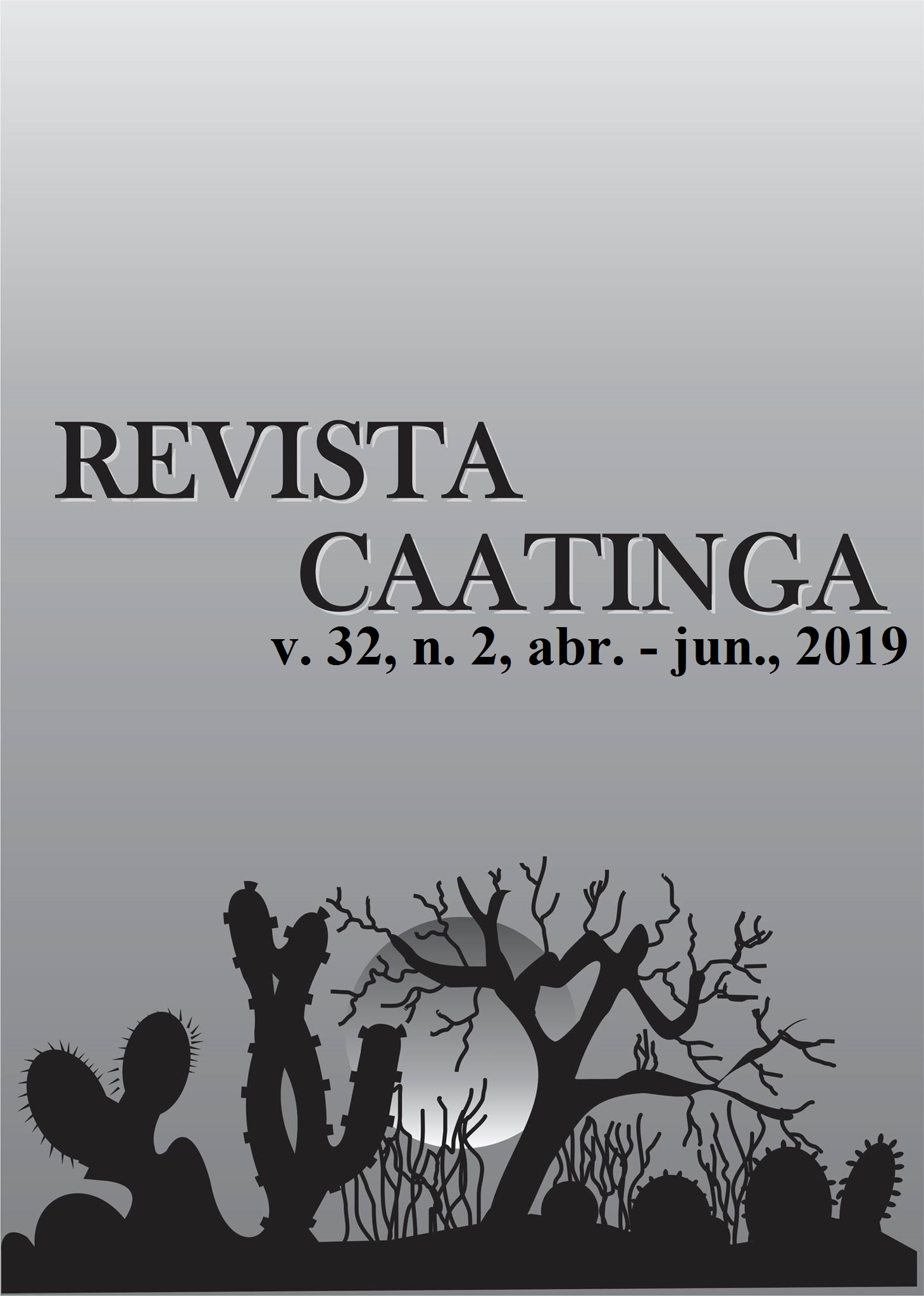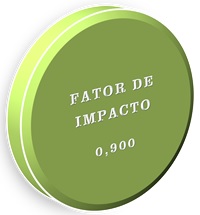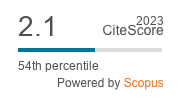REACTION OF Psidium spp. ACCESSIONS TO DIFFERENT LEVELS OF INOCULATION WITH Meloidogyne enterolobii
DOI:
https://doi.org/10.1590/1983-21252019v32n215rcKeywords:
Guava. Root-knot nematode. Genetic variability.Abstract
Meloidogyne enterolobii associated with Fusarium solani causes the guava decay, which is the main factor of yield loss in guava crops and limits guava production in Brazil. Therefore, searching for guava genotypes (Psidium spp.) with resistance to M. enterolobii is important to control this root-knot nematode. The objective of the present work was to evaluate the reaction of Psidium spp. accessions from the Germplasm Bank of the Bahia State University (UNEB) to different levels of inoculation with M. enterolobii. Guava seedlings were inoculated with 600, 1,600, and 2,000 eggs + J2 second stage juveniles of M. enterolobii and the root fresh weight, total number of eggs (TNE), and reproduction factor (RF) were evaluated. The results were subjected to ANOVA and means were clustered using the Scott-Knott test at 5% probability. The diversity of accessions was estimated using the Tocher's clustering and UPGMA methods. The nematode RF reduced in some accessions with increasing inoculation levels of the nematode. However, the RF increased in some accessions with high levels of inoculation. Plants of the Y50 accession were immune or resistant to M. enterolobii, indicating variability of reaction of plants to the nematode within the Psidium genus. The resistance of Psidium accessions to M. enterolobii needs to be measured with different inoculation levels to verify the existence of false-positive results, since the evaluated accessions, including the Paluma cultivar, presented distinct reactions regarding RF in the three levels of inoculation used.
Downloads
Downloads
Published
Issue
Section
License
Os Autores que publicam na Revista Caatinga concordam com os seguintes termos:
a) Os Autores mantêm os direitos autorais e concedem à revista o direito de primeira publicação, com o trabalho simultaneamente licenciado sob a Licença Creative Commons do tipo atribuição CC-BY, para todo o conteúdo do periódico, exceto onde estiver identificado, que permite o compartilhamento do trabalho com reconhecimento da autoria e publicação inicial nesta revista, sem fins comerciais.
b) Os Autores têm autorização para distribuição não-exclusiva da versão do trabalho publicada nesta revista (ex.: publicar em repositório institucional ou como capítulo de livro), com reconhecimento de autoria e publicação inicial nesta revista.
c) Os Autores têm permissão e são estimulados a publicar e distribuir seu trabalho online (ex.: em repositórios institucionais ou na sua página pessoal) a qualquer ponto antes ou durante o processo editorial, já que isso pode gerar alterações produtivas, bem como aumentar o impacto e a citação do trabalho publicado (Veja O Efeito do Acesso Livre).







